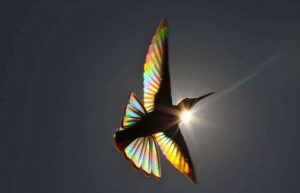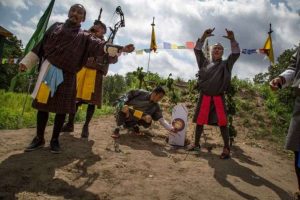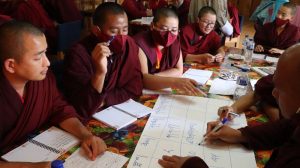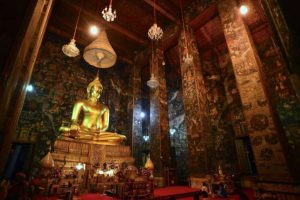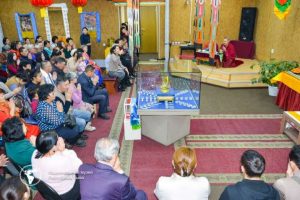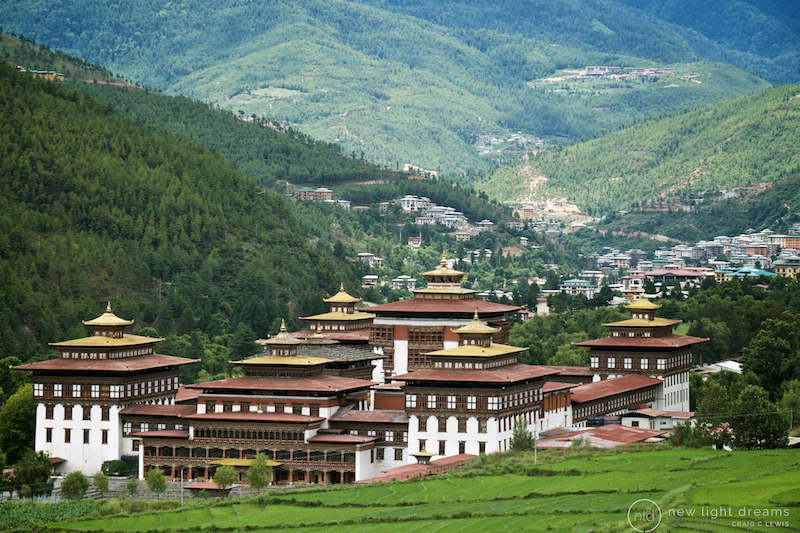
The Himalayan Kingdom of Bhutan earlier this month became the first country to receive a free shipment of COVID-19 vaccines as part of India’s ongoing vaccine diplomacy efforts, receiving a consignment of 150,000 doses on 20 January of the Oxford-AstraZeneca vaccine from India’s domestic production.
“First consignment takes off for Bhutan!” Indian Ministry of External Affairs spokesman Anurag Srivastava stated on social media. “India begins supply of COVID vaccines to its neighboring and key partner countries.”
India, which has a long-established vaccine industry, including the Serum Institute of India (SII), one of the world’s largest vaccine makers, cemented a partnership agreement early in the pandemic to produce the Oxford-AstraZeneca vaccine domestically under license, using the brandname Covishield. Earlier this month, India reported that it had already stockpiled some 80 million doses, a portion of which will be contributed to the World Health Organization-backed COVAX initiative to distribute vaccines to less prosperous countries.
Under its distribution program, hashtagged #VaccineMaitri, India is also delivering millions of free vaccines to Afghanistan, Bangladesh, Brazil, the Maldives, Mauritius, Morocco, Myanmar, Nepal, the Seychelles, and Sri Lanka.
In a statement on Twitter promoting India’s vaccine diplomacy push, Indian prime minister Narendra Modi said that India was “deeply honored to be a long-trusted partner in meeting the healthcare needs of the global community.”
India’s foreign minister, S. Jaishankar, also took to Twitter, exclaiming: “The Pharmacy of the World will deliver to overcome the COVID challenge.”
#VaccineMaitri begins. Consignment arrives in Bhutan. Another example of #NeighbourhoodFirst. pic.twitter.com/noW9nzGZ9x
— Dr. S. Jaishankar (@DrSJaishankar) January 20, 2021
Despite hesitancy from some segments of society, many countries are working to roll out vaccination programs as quickly as possible, while others are taking a more measured approach in the hope of seeing more definitive vaccine data.
Bhutan’s prime minister, Dr. Lotay Tshering, has said that the kingdom will wait until it has accumulated sufficient doses to vaccinate all 533,000 eligible citizens at the same time. The government subsequently decided to offer early doses to Bhutanese who need to travel overseas and may therefore be unable to receive the vaccine during the national rollout.
The government has decided that the national vaccination program will begin on an auspicious day, noting that the Dana (inauspicious month) that runs from 14 February–13 March would give Bhutan an opportunity to observe any potential adverse outcomes from the vaccine around the world. Dr. Tshering has also stated that he will be among the first recipients of the COVID-19 vaccine in Bhutan.
“I will take the vaccine for my own protection. If there are no benefits of taking the vaccine, will I still go on and take the vaccine just to convince the public? No, I will not,” he said during a public address shared over social media. “I will not mislead the nation. It is not a political game or to show to others how courageous I am. I’m a professional and I know the vaccine has a high level of protection, which is why I’ll take the jab, 100 per cent.” (Kuensel)
Bhutan was quick to adopt a comprehensive, evidence-based tracing and testing regime soon after the SARS-CoV-2 novel coronavirus began spreading around the world, putting in place strict border controls and a three-week quarantine procedure for all returnees to avoid overloading its healthcare system. The coordinated response has been bolstered by the Bhutan’s traditional communal values—in which all levels of society, including the royal family, have acted in concert to observe social-distancing and support other response measures—and the country’s free universal healthcare system, a key aspect of the kingdom’s Gross National Happiness (GNH) philosophy.
Bhutan’s government ordered its second national lockdown in December, during a period when the number of confirmed infections in the country rose from about 400 to more than 700. The first infection in Bhutan was detected in an American tourist in March last year.*
At the time of writing on 29 January, Bhutan had reported 897 confirmed cases of COVID-19 and one related death, the lowest number of recorded cases in South Asia, with 776 people recovered. Total global cases have exceeded 101 million, with 2.2 million related deaths recorded and 56 million recovered.**
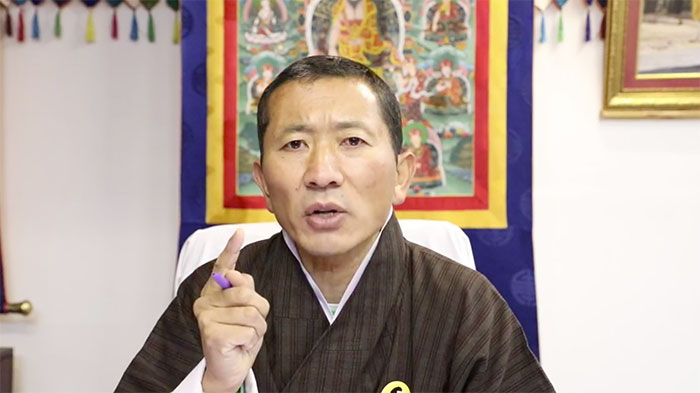
Remote, landlocked, and perched in the rarified air of the eastern Himalaya, Bhutan is the world’s last remaining Vajrayana Buddhist Kingdom. The ancient spiritual tradition is embedded in the very consciousness and culture of this remote land, where it has flourished with an unbroken history that dates back to its introduction from Tibet by Padmasambhava, also known as Guru Rinpoche, in the eighth century.
Roughly 75 per cent of Bhutan’s population of some 770,000 people identify as Buddhists, according to the Washington, DC-based Pew Research Center, with Hindus accounting for the majority of the remaining 25 per cent. Most of Bhutan’s Buddhists follow either the Drukpa Kagyu or the Nyingma schools of Vajrayana Buddhism.
* Sole Coronavirus Patient in Buddhist Bhutan Flies Home and Bhutan Closes Borders for Two Weeks After Reporting First Coronavirus Case (Buddhistdoor Global)
See more
Dana helps Bhutan to prepare for vaccination programme (Kuensel)
PM to be among the first to take Covid-19 vaccine (Kuensel)
Vaccination to start with Bhutanese travelling outside (Kuensel)
The Covid-19 vaccination plan (Kuensel)
India starts coronavirus vaccine exports with shipments to Bhutan (Reuters)
India starts COVID-19 vaccine exports with shipments to Bhutan (CNA)




